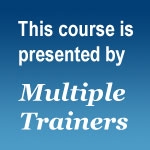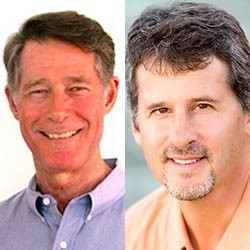

Search Results: challenge
-
Explore NVC's role in transforming power dynamics and bridging social divides.
-
Deepen your empathic presence with Raj and Mary, for those with basic understanding of NVC.
-
NVC practice is based on several key assumptions and intentions. When we live based on these assumptions and intentions, self-connection and connection with others become increasingly possible and easy, helping us contribute to a world where everyone’s needs are attended to peacefully.
-
Make NVC feel natural and authentic with intuitive tools for connection and everyday integration.
-
Trainer Tip: Take a moment to consider feelings, our conditioning about expressing or even feeling emotion, and the value of re-evaluating our relationship to feelings.
-
It is 5:30 in the morning. I am sitting in a medical facility waiting for my wife, Kim, who has just gone in for a minor surgical procedure. I have only had a couple of hours of sleep and I can barely keep my eyes open. I am not very worried, but am a little worried about Kim. The kind of worry that happens to me when anyone I love (human or animal) is put “under” anesthesia.
-
I want to report that after writing last month’s Growing Roots letter, I did indeed employ my tried-and-true method of moving past inertia: First step time limits. In doing so, I made progress on planting my vegetable garden.
-
Shift how you respond to conflict with this Mediate Your Life course and create lasting change.
-
Along with it’s potential for helping others calm their emotions and feel deeply understood, the Nonviolent Communication process of empathetic listening can help someone increase their capacity for finding their own truth.
-
Miki explains the distinction between the language and the underlying consciousness of NVC, and the pitfalls of failing to do so.
-
Apply NVC in business with ROI-focused messaging, tailored proposals, and outreach strategies.
-
Some people in the NVC community consider the words "privilege" and "power" triggering and/or evaluative. From this perspective, how can the concepts of "privilege" and "power" be considered part of the NVC teaching? This writing piece examines the power and privilege debate. It also discusses what the author sees as Marshall Rosenberg and Gandhi's stance on the subject...
-
Trainer Tip: When we are authentic about who we are, and our preferences, we give everyone and ourselves a better opportunity to open up dialogue about how to meet our collective needs better. We simply express our truth, and in that way we value our own needs as much as those of others.
-
Trainer Tip: Only after we connect to our unmet need can we make sound decisions that will transform our experience. For example, if you feel bored, connect to your unmet needs (eg. need for understanding the relevance, etc) and then look for strategies that will meet them (eg. ask the speaker how this topic relates to our lives).
-
By focusing on NVC process and practice without factoring in the interdependent, systemic dimension we unwittingly diminish the power of NVC. We reinforce the dominant paradigm, rather than challenging it -- making NVC one more tool for compliance. NVC principles can turn against its own purpose in cruel ways. NVC could also empower social change. We'll need our attention on this matter if we are to contribute to transforming the oppression we face and our collective march towards extinction.
-
Trainer tip: If you are in a relationship (whether personal or work related) that you are not happy with, consider talking to the other person in an effort to connect about both your needs. Talking about it doesn’t guarantee that you will like the resolution, but not talking about it guarantees continued unhappiness. Read on for more.
-
- Discover how to be radically honest without pushing “the other” away
- Learn to ask firmly and gracefully for what you want, hear ‘NO,’ and stay alive
- Explore how the power of empathy dissolves anger, pain, and fear
- Discern the essence of what others say, no matter how it is expressed
-
Open your heart across differences with humility and courage as you explore new perspectives.
-
Bring Buddhist principles to life through NVC and rediscover aliveness and mindful presence.
-
- Integrate the underlying principles of NVC into your daily life
- Create a daily practice of self empathy and connecting to needs
- Strengthen your own personalized set of NVC skills
- Increase your sense of power in the world
- Deepen connection with yourself and those in your life
Quick Links

Stay in Touch!
We value your privacy, won't share your email address and you can easily unsubscribe any time.



















